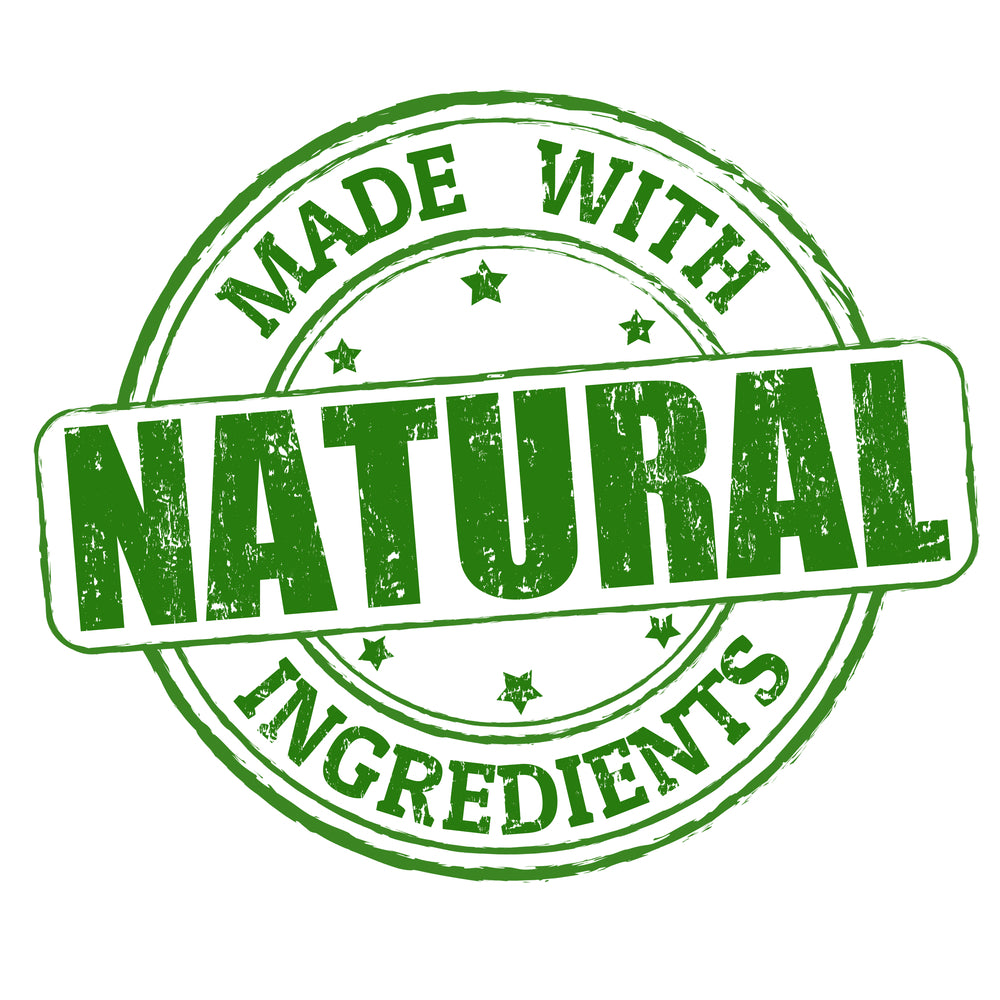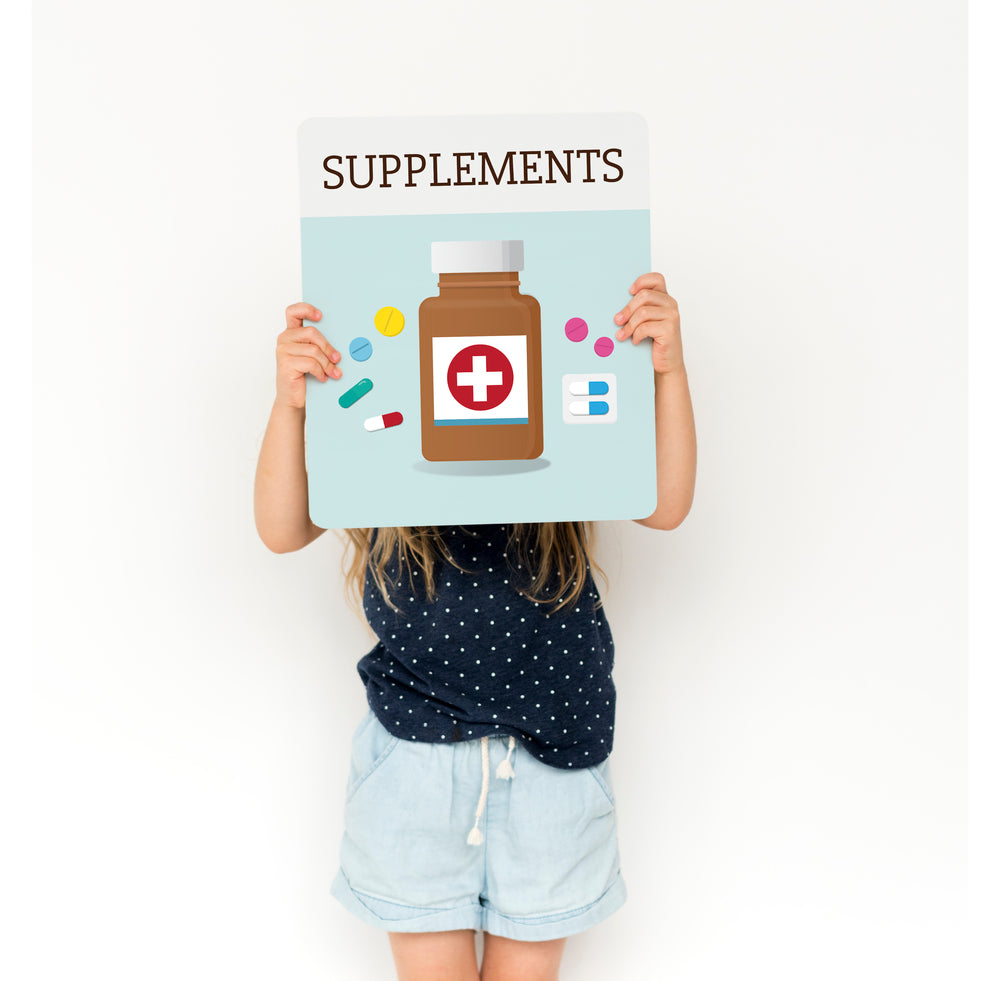Pregnancy and Iron Gummies: What Every Woman Should Know

Iron is a crucial nutrient for overall health and well-being, and it's particularly important for women who are pregnant or planning to become pregnant. Iron helps the body create red blood cells, which carry oxygen to both the mother's and baby's tissues. Pregnancy increases the body's need for iron, with the recommended daily intake increasing from 18 milligrams to 27 milligrams.
Iron deficiency during pregnancy is common and can lead to conditions such as iron deficiency anemia, which can cause fatigue, and weakness, and can also increase the risk of premature birth, low birth weight, and postpartum depression. For the baby, it can lead to developmental issues. This is why iron supplementation is often recommended for pregnant women.
Iron gummies can be a good option for some women for several reasons:

- Easier on the Stomach: Some women find traditional iron pills difficult to digest, causing constipation or nausea. Iron gummies can be easier on the stomach and more pleasant to take.
- Taste: Many women find the taste of iron gummies to be more appealing than traditional iron supplements.
- Convenience: Gummies can be taken anytime, anywhere, without water, which makes them a convenient option for busy women.
However, there are also a few considerations when choosing iron gummies:
- Lower Iron Content: Iron gummies typically contain less iron per serving than traditional iron supplements, so women may need to take more gummies to meet their daily iron needs. This could lead to higher costs over time.
- Sugar Content: Many gummies contain added sugars. While these sugars make the gummies taste good, they can contribute to unnecessary calories and potential issues like cavities, especially if oral hygiene is not maintained.
- Choking Hazard: For women with children at home, it's important to keep iron gummies out of reach as they can be a choking hazard for small children.
- Absorption: Certain types of iron are more easily absorbed than others. Iron in the form of ferrous salts (ferrous sulfate, ferrous fumarate, and ferrous gluconate) is better absorbed than others. Check the form of iron in your gummies.
Always consult with a healthcare provider before starting any new supplement regimen, especially during pregnancy. They can provide guidance based on your individual health needs and circumstances. Remember, supplements are not a substitute for a balanced, nutritious diet. Eating a variety of iron-rich foods such as lean meat, seafood, beans, green leafy vegetables, and iron-fortified grains and cereals, can also help meet your iron needs during pregnancy.
I'd be happy to provide more details.

Iron gummies are a form of dietary supplement designed to increase iron levels in the body. These gummies are especially helpful for individuals with iron deficiencies, and they are often recommended for pregnant women who have increased iron needs.
Iron Requirements During Pregnancy
During pregnancy, a woman's blood volume increases to supply oxygen and nutrients to the fetus. This means that pregnant women need more iron to make more hemoglobin, the protein in red blood cells that carries oxygen. As mentioned earlier, the recommended daily intake of iron for pregnant women is 27 milligrams, compared to 18 milligrams for non-pregnant women.
Why Iron Gummies?
Pregnant women might find iron gummies a more palatable option compared to traditional iron tablets or capsules. This is particularly beneficial for those experiencing morning sickness, as gummies are generally easier to keep down and are less likely to cause stomach upset. They also tend to be gentler on the digestive system, reducing the likelihood of constipation, a common side effect of iron supplements.
However, there are a few things to consider when choosing iron gummies:
- Iron Content: It's important to check the label to ensure that the gummies contain the appropriate amount of iron. Some may not provide enough iron to meet the increased needs during pregnancy.
- Type of Iron: There are several types of iron used in supplements, including ferrous sulfate, ferrous fumarate, ferrous gluconate, and others. The type of iron can affect how well it's absorbed by the body. Ferrous forms are generally absorbed well.
- Additional Nutrients: Some iron gummies also contain other vitamins and minerals, such as vitamin C, which can enhance iron absorption, or folic acid, another important nutrient during pregnancy.
- Safety Standards: Ensure that the product has been tested for safety and efficacy. In the U.S., for example, look for supplements that have been tested by an independent third-party organization, such as the U.S. Pharmacopeia (USP), NSF International, or Consumer Lab.
- Consult Your Doctor: Iron supplements should be used under the guidance of a healthcare provider because too much iron can lead to iron toxicity. Your doctor can provide a recommendation based on your individual needs.
Balanced Diet
Even though iron supplements can help ensure adequate iron intake, they should not replace a balanced, iron-rich diet. Foods high in iron include lean meats, seafood, poultry, iron-fortified cereals and grains, legumes, and dark green leafy vegetables. Eating vitamin C-rich foods alongside iron-rich foods can help enhance iron absorption.
Iron Overdose
While it's important to ensure sufficient iron intake during pregnancy, too much iron can be harmful. Symptoms of iron overdose can include fatigue, anorexia, dizziness, nausea, vomiting, headache, weight loss, shortness of breath, and possibly a grayish color to the skin. In severe cases, it can cause organ damage. This is why it's important to take iron supplements under the guidance of a healthcare provider.
In conclusion, while iron gummies can be an effective way to supplement iron intake during pregnancy, they should be used as part of an overall strategy that includes a balanced diet rich in iron and regular check-ups with a healthcare provider to monitor iron levels.
Iron is a critical nutrient during pregnancy because it helps both the mother's body and the fetus develop and function optimally. To delve even deeper into the role of iron during pregnancy, it's important to understand how it helps both the mother and the developing baby.
Role of Iron in Pregnancy
- Hemoglobin Production: The mother's blood volume increases by about 50% during pregnancy to help transport oxygen and nutrients to the developing baby. Iron is a key component of hemoglobin, the protein in red blood cells that carries oxygen. An iron deficiency can lead to low hemoglobin levels, potentially leading to iron-deficiency anemia.
- Fetal Development: Iron is essential for the baby's growth and development, especially during the second and third trimesters. It supports the development of the fetus's brain and nervous system.
- Immune Function: Iron plays a role in immune function, which is particularly important during pregnancy to protect the mother and baby from infections and disease.
Iron Gummies: What to Consider
As I've mentioned, iron gummies can be an easier and more palatable way to increase iron intake. However, here are some in-depth considerations:
- Iron Content: Check the label of the gummies to see how much elemental iron they contain. This can vary greatly among brands and even among different products from the same brand.
- Type of Iron: Iron can be found in two forms in supplements: ferrous and ferric. Ferrous iron is better absorbed and is the preferred form. Commonly used ferrous forms in supplements include ferrous sulfate, ferrous gluconate, and ferrous fumarate.
- Additional Nutrients: Some iron gummies also contain other vitamins and minerals. Vitamin C, for example, enhances iron absorption, while folic acid is essential for neural tube development in the fetus. However, avoid products with calcium and iron together, as calcium can inhibit iron absorption.

- Regulations and Standards: Not all supplements are created equal. In the U.S., the Food and Drug Administration (FDA) doesn't regulate dietary supplements as strictly as it does prescription medications. This means quality can vary. Looking for products that have been certified by third-party testing organizations like USP, NSF International, or Consumer Lab can provide some assurance of quality and safety.
Risk of Iron Overdose
While it's critical to get enough iron during pregnancy, getting too much can also be dangerous. This is known as iron toxicity, and it can cause symptoms like stomach pain, nausea, and constipation. In severe cases, it can even lead to organ damage. It's also worth noting that iron is a leading cause of poisoning deaths in children, so iron supplements should be stored out of children's reach.
Individual Differences and Needs
Every woman's body and pregnancy are different, so iron needs can vary. Factors that might increase a woman's iron needs during pregnancy include carrying multiples, having back-to-back pregnancies, heavy menstrual periods before pregnancy, and not getting enough iron in the diet.
Given these factors, it's crucial to talk with a healthcare provider before starting an iron supplement regimen. They can help determine your individual iron needs and recommend a supplement that's right for you. Regular blood tests can also monitor your iron levels throughout your pregnancy to ensure you're getting the right amount.
Balanced Diet
A balanced, nutritious diet is the best way to get the vitamins and minerals your body needs. Good sources of dietary iron include lean meats, seafood, poultry, iron-fortified cereals and grains, legumes, and dark green leafy vegetables. Pairing these with foods high in vitamin C can enhance iron absorption.

In conclusion, iron is critical during pregnancy, and iron gummies can be a beneficial supplement to help meet increased iron needs. However, they should be used responsibly and under the guidance of a healthcare provider, and they should not replace a balanced, iron-rich diet.
While iron is crucial during pregnancy, there are other important nutrients that are necessary for a healthy pregnancy. Here are some of them:
- Folic Acid (Folate): This B vitamin is crucial in the early stages of pregnancy to prevent neural tube defects, which are serious abnormalities of the brain and spine. It is recommended that women who are planning to become pregnant or in their first trimester take a daily supplement containing 400 to 800 micrograms of folic acid.
- Calcium: Calcium is necessary for the baby's bone development. If the mother doesn't consume enough calcium, her body will take it from her bones to give to the baby, which can affect her own bone health. The recommended dietary intake of calcium during pregnancy is 1000mg for women aged 19-50.
- Vitamin D: This vitamin is also necessary for bone health and to help the body use calcium. It may also play a role in maintaining a healthy immune system and healthy cell division. The recommended dietary intake of Vitamin D during pregnancy is 600 IU.
- DHA (Docosahexaenoic Acid): This is an omega-3 fatty acid that's important for the development of the baby's brain and eyes. Pregnant women are often advised to get at least 200mg of DHA per day.
- Iodine: Iodine is critical for the development of the baby's brain and nervous system. It also helps maintain the mother's metabolism. The recommended dietary intake of iodine during pregnancy is 220 micrograms per day.
- Choline: Choline is important for brain development and helps prevent neural tube defects. The recommended dietary intake of choline during pregnancy is 450 milligrams per day.
- Protein: Protein is crucial for the growth of fetal tissue, including the brain. It also helps with breast and uterine tissue growth during pregnancy. The recommended dietary intake of protein during pregnancy is 71 grams per day.
- Zinc: Zinc is essential for the growth and development of the baby and helps with DNA synthesis. The recommended dietary intake of zinc during pregnancy is 11 milligrams per day.
Remember that while supplements can help you reach your nutritional needs during pregnancy, they should not replace a balanced diet. Always discuss with your healthcare provider before starting any new supplement regimen.
Also, consider your lifestyle and personal habits. Regular physical activity (as advised by your healthcare provider), adequate sleep, and avoiding harmful substances like alcohol and tobacco can contribute significantly to a healthy pregnancy.

And, as always, maintain regular check-ups with your healthcare provider throughout your pregnancy. They can provide personalized advice based on your health history and the progression of your pregnancy, monitor the development of your baby, and address any concerns or complications promptly.
In addition to nutritional needs, it's also essential to consider overall well-being and mental health during pregnancy. Pregnancy is a time of significant changes, both physically and emotionally, and taking care of your mental health is equally as important as taking care of your physical health.
Emotional Wellbeing
- Stress Management: Pregnancy can be a joyous time, but it can also bring stress and anxiety. Prenatal stress can have effects on both the mother and the baby. It's important to find effective ways to manage stress, such as mindfulness practices, yoga, or other relaxation techniques.
- Mental Health: Conditions like depression and anxiety can occur or become exacerbated during pregnancy. If you're feeling persistent sadness, anxiety, or other symptoms of mental health disorders, it's crucial to seek help from a healthcare provider.
- Support Systems: Having a strong support system can provide emotional and practical help during pregnancy. This can include partners, family, friends, or support groups. Don't hesitate to reach out to your support network when you need help or just someone to talk to.
Healthy Lifestyle Habits
- Exercise: With the guidance of your healthcare provider, regular physical activity can help manage weight gain, improve mood, and increase stamina for labor and delivery. It's usually safe to continue with your pre-pregnancy exercise routine, or you can find pregnancy-specific workouts like prenatal yoga or swimming.
- Adequate Rest: The physical changes and demands of pregnancy can lead to fatigue. Prioritizing sleep and rest is important for your health and the health of your baby. If you're finding it hard to get comfortable as your belly grows, consider using pillows to support your body.
- Hydration: Staying hydrated is essential for supporting increased blood volume and amniotic fluid. Try to drink plenty of water throughout the day, but be mindful of your intake if your healthcare provider has mentioned concerns about fluid balance or swelling.
Prenatal Care
- Regular Check-ups: Regular prenatal check-ups help monitor your health and the development of your baby. They are also an opportunity to discuss any concerns or questions you have.

- Screening Tests: During pregnancy, you will be offered various screening tests, such as blood tests and ultrasounds, to check for potential health issues in your baby, like Down syndrome and other genetic disorders, heart issues, and birth defects.
Remember, every pregnancy is unique, and there is no one-size-fits-all approach to prenatal care. Always consult with your healthcare provider for advice tailored to your individual needs.
Here are a few additional ideas to consider:
- Prenatal Classes: Consider enrolling in a prenatal class. These classes can cover topics like what to expect during labor and delivery, pain relief options, breastfeeding basics, newborn care, and more. They're also a great way to connect with other expecting parents.
- Birth Plan: A birth plan is a document that communicates your preferences for labor and delivery to your healthcare team. This can include your preferences for pain relief, who you want in the room with you, and what should happen in the case of complications.
- Hospital Tour: If you're planning a hospital birth, taking a tour of the hospital or birthing center can be beneficial. This allows you to familiarize yourself with the facility, understand where to go when you're in labor, and ask any questions you might have.
- Prepare for Baby's Arrival: This can include setting up the nursery, washing and organizing baby clothes, packing a hospital bag, and installing a car seat.
- Journaling: Keeping a pregnancy journal can help you track your pregnancy symptoms, jot down questions for your healthcare provider, and document your feelings and experiences during this special time.
- Pregnancy Apps: There are many apps available that can help you track your pregnancy week by week, remind you to take your prenatal vitamins, provide workout routines for pregnancy, offer meditation and relaxation techniques, and more.
- Self-Care: Pregnancy is a time of tremendous change, and it's important to take care of yourself both physically and emotionally. This can involve taking time each day to relax and unwind, treating yourself to a prenatal massage or a manicure, or simply spending a few minutes each day in quiet reflection.
- Learn About Parenting: While preparing for labor and delivery is important, it's also worth spending some time learning about what comes after — taking care of your new baby. This could involve reading books about parenting, attending a newborn care class, or talking to friends and family members who are parents.
Remember, there's no definitive guide to having a perfect pregnancy. What's most important is that you stay in tune with your body, maintain open communication with your healthcare provider, and navigate this journey in a way that feels right for you.


